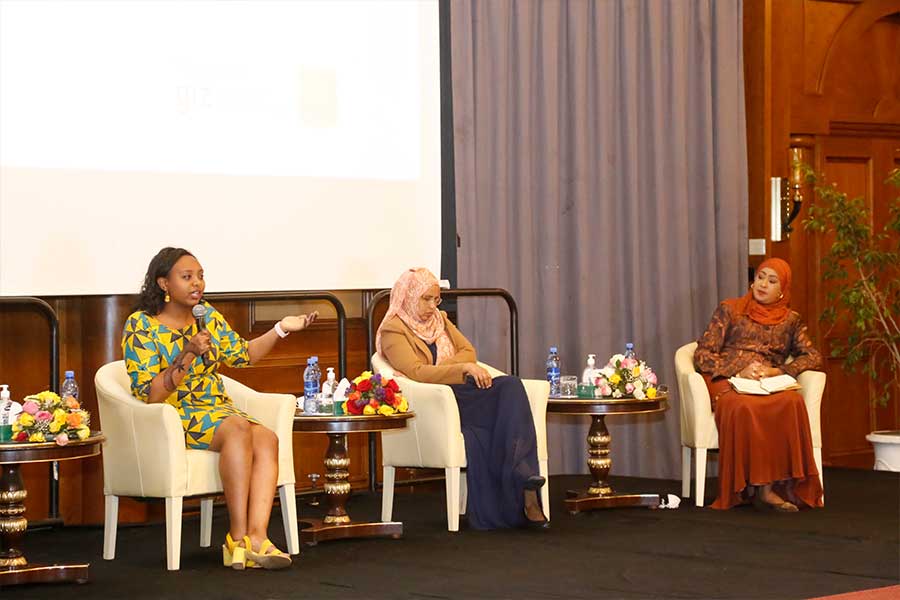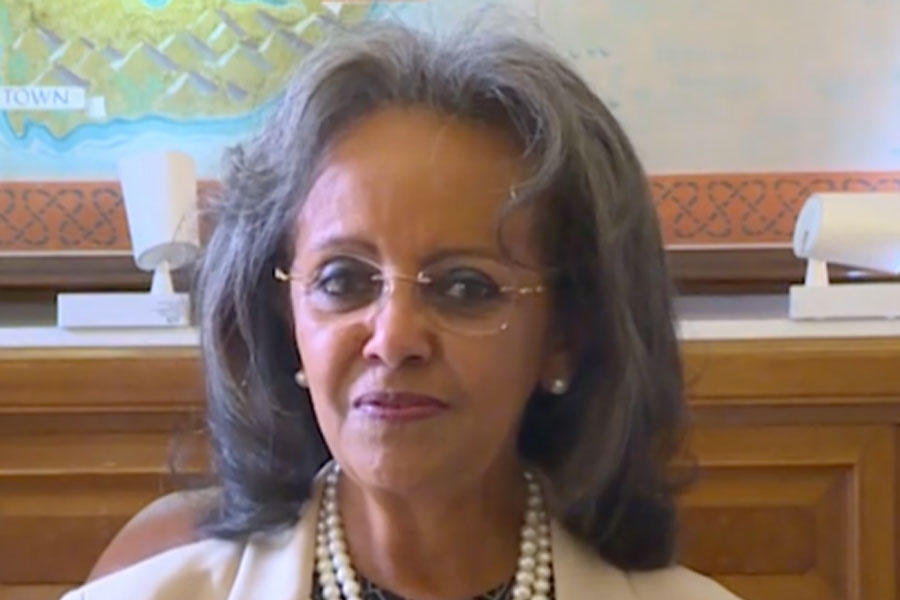
Apr 26 , 2019
By Etenat Awol
The debate over the equality between men and women continues to rage. At this point, it is an argument quite impossible to escape from and is more likely to increase in depth and scale.
However, the central point of the argument is heavily misunderstood, a problem that can derail the purpose of the discourse. The matter is being talked about in reductionist terms. Some argue that men or women, whatever their inclination is, are superior or the perfect version of humanity. Others argue that they cannot be equal given that both have unique and defining characteristics, suggesting that it is better to accept our differences.
Usually, this debate goes far beyond biological and psychological differences or history itself. Based on such associations, a slew of discussion points are made, a methodology that can run counter to rational deliberation.
However, the ideas mainly raised from such discussions are embodied with different circumstantial evidence and facts, making it seem like an almost acceptable perspective to take about the issue.
It is important to stress that equality never refers to sameness or indifference. Those who advocate gender equality are not blind enough to never see the biological differences between the two sexes. Equality acknowledges differences between the sexes but does not support biological differentiation as a basis for subjugation.
Equality does not refer to authority in human relationships being designated solely on the basis of a person’s sex at birth. In the meantime, if men and women were equal - in this sense get equal opportunities and equal choices over their destinies - we would not be here talking about equality or women's rights or their economic empowerment. In fact, there is no place of doubt for that, because history and current social norms and hierarchies confirm this hypothesis.
The simple definition of gender equality is proving equal opportunity for men and woman. A philosophical meaning should not be given to it, and neither should history be associated with it. The very concept of equality refers to giving equal options for educating boys and girls without arranging maleness as privilege and gender as a measurement for priority. It means giving equal responsibility and expectation for men and women employees and ceasing to equate masculinity with flawlessness and femininity with inability.
Equality does not deny the fact that there are differences between the sexes. There will continue to be differing interests, choices and strengths. In fact, the socio-political and economic systems of countries should be flexible enough for these differences to be reflected. Both sexes choose a way of getting involved in the world, distorting long-held traditions and understandings, and toward that, our systems should be ready.
The reductionist views of gender arguments are insufficient and threaten the necessary social change that is needed. Equality is a way to circumstantial independence, the sort that enables women to choose, as it is the ultimate goal of most kinds of feminism.
To be liberated, to have free will in one’s life, is the best accomplishment of human rights at large, and based on this right, equality works to attain freedom. The kind of freedom exclusively afforded to women or men will otherwise thwart the struggle.
“Gender equality is more than a goal in itself. It is a precondition for meeting the challenges of reducing poverty, promoting sustainable development and building good governance,” Kofi Anan, former secretary-general of the United Nations, once said.
There should be a universally acceptable definition of equality, which is the only form that can supplement and reinforce a rational debate of the matter at hand.
PUBLISHED ON
Apr 26,2019 [ VOL
20 , NO
991]


Radar | Jan 31,2021

Life Matters | Apr 17,2021

Sunday with Eden | Dec 11,2020

Verbatim | Nov 21,2018

Viewpoints | Jun 18,2022

Viewpoints | Mar 26,2022

Verbatim | Dec 16,2023

Verbatim | Mar 30,2019

View From Arada | Dec 07,2019

Radar | Mar 30,2019

My Opinion | 131584 Views | Aug 14,2021

My Opinion | 127940 Views | Aug 21,2021

My Opinion | 125915 Views | Sep 10,2021

My Opinion | 123539 Views | Aug 07,2021

Dec 22 , 2024 . By TIZITA SHEWAFERAW
Charged with transforming colossal state-owned enterprises into modern and competitiv...

Aug 18 , 2024 . By AKSAH ITALO
Although predictable Yonas Zerihun's job in the ride-hailing service is not immune to...

Jul 28 , 2024 . By TIZITA SHEWAFERAW
Unhabitual, perhaps too many, Samuel Gebreyohannes, 38, used to occasionally enjoy a couple of beers at breakfast. However, he recently swit...

Jul 13 , 2024 . By AKSAH ITALO
Investors who rely on tractors, trucks, and field vehicles for commuting, transporting commodities, and f...

Jun 28 , 2025
Meseret Damtie, the assertive auditor general, has never been shy about naming names...

Jun 21 , 2025
A well-worn adage says, “Budget is not destiny, but it is direction.” Examining t...

Jun 14 , 2025
Yet again, the Horn of Africa is bracing for trouble. A region already frayed by wars...

Jun 7 , 2025
Few promises shine brighter in Addis Abeba than the pledge of a roof for every family...

Jun 29 , 2025
Addis Abeba's first rains have coincided with a sweeping rise in private school tuition, prompting the city's education...

Jun 29 , 2025 . By BEZAWIT HULUAGER
Central Bank Governor Mamo Mihretu claimed a bold reconfiguration of monetary policy...

Jun 29 , 2025 . By BEZAWIT HULUAGER
The federal government is betting on a sweeping overhaul of the driver licensing regi...

Jun 29 , 2025 . By NAHOM AYELE
Gadaa Bank has listed 1.2 million shares on the Ethiopian Securities Exchange (ESX),...